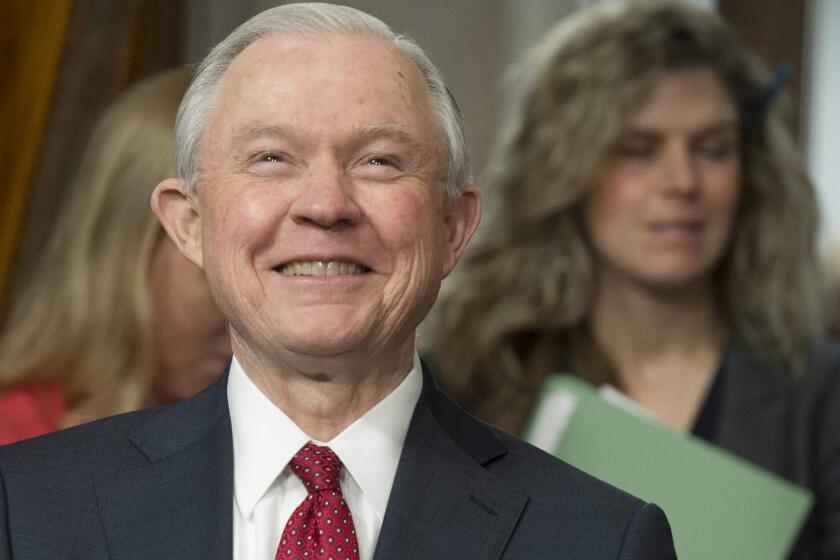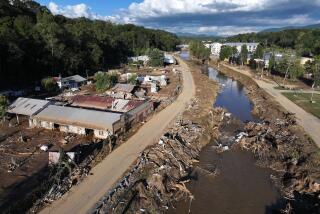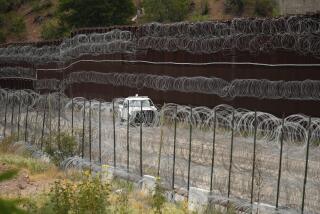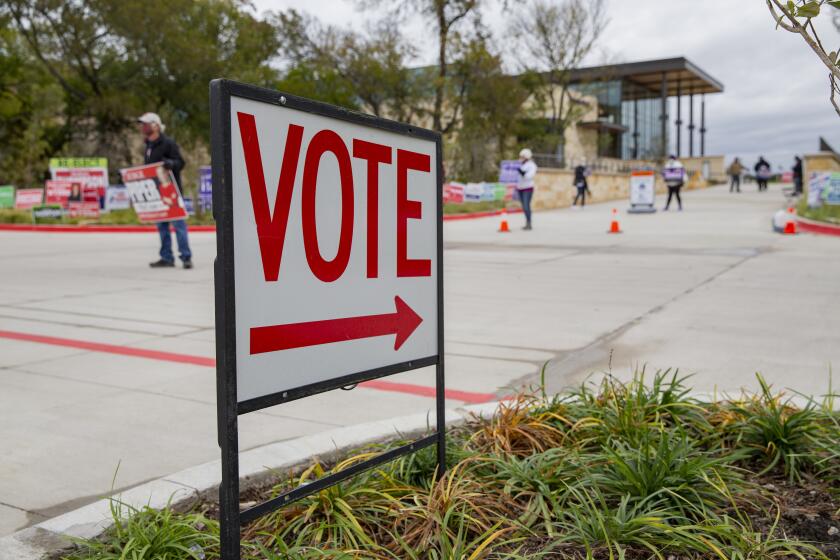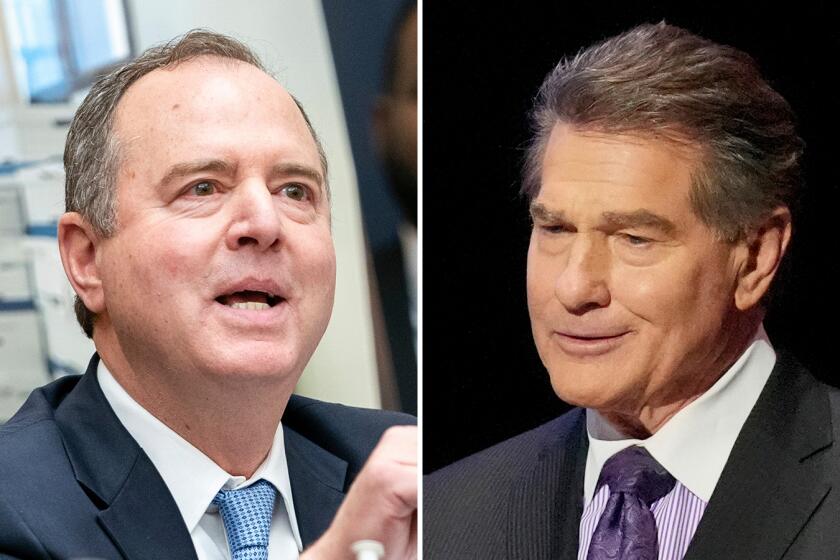Opinion: Trump says his visa crackdown will help put Americans back to work. It won’t
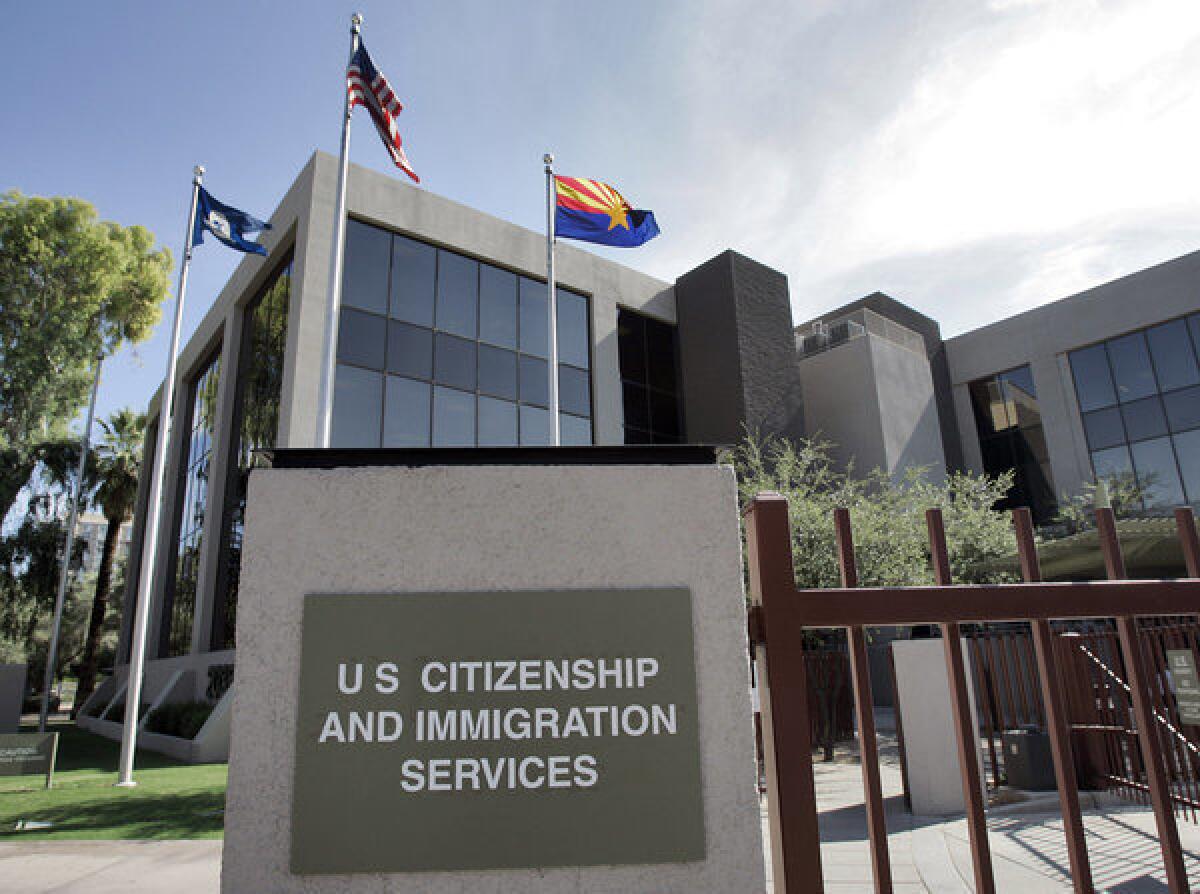
Having used the COVID-19 pandemic as a pretext to shut out asylum seekers, President Trump is now using the disease as an excuse to exclude skilled workers, seasonal laborers and other would-be employees simply because they’re not Americans.
Don’t expect the Democrats who railed against Trump’s asylum moves to howl about the worker visa restrictions, however. On this issue, Trump’s actions scramble the usual political calculus.
The president issued a proclamation Monday barring the federal government from issuing at least five types of temporary visas for foreign workers, professors and their spouses through the end of the year. The rationale, administration officials said Monday, was to preserve roughly half a million jobs for U.S. citizens who were swept up in the tsunami of coronavirus-related layoffs in recent months. Trump had cited similar reasons in April when he issued a more limited visa suspension.
This populist “America first” approach to jobs dovetails with the views of the anti-immigration hard-liners on the right who want to build a wall across the southern border. But it also resonates with many labor-friendly folks on the left who will welcome the restrictions because, with 21 million U.S. working-age adults unemployed in May, there are plenty of citizens who badly need jobs.
There is evidence that worker visas, and particularly the H-1B program, have enabled some employers to replace higher-wage U.S. workers with cheaper foreign labor. That’s particularly true as companies have switched from having in-house tech support teams to tech service contractors, many of which rely on foreign workers.
Yet Congress hasn’t killed these programs (and in fact has expanded some of them) because they address a real need in the labor market. In science and tech fields, for example, research suggests that there’s a mismatch between the skills demanded in certain fields and those held by U.S. workers, resulting in a surplus of workers in some areas and a shortage in others. And food- and leisure-industry employers who rely on seasonal workers have long argued that they, like farm owners, simply cannot find enough citizens willing to fill the lower-skill jobs they have to fill.
It’s also worth noting that the worker visa programs require employers to use them only as a last resort to fill jobs that they could not fill with Americans. The Trump administration — which has denied H-1B applications at a record rate, according to research by Mother Jones and Reveal — pledged to improve enforcement of those terms, which is the right way to get at the problems that exist.
(A number of people have pointed out that H-1B programs impose the hire-Americans-first requirement only on employers who rely on those visas for 15% or more of their staff or who previously abused the program, and even then provide an exception for workers with advanced degrees or salaries of at least $60,000. The requirement is much clearer when it comes to permanent work permits. Regardless, as noted above, the H-1B program has been shown to cost American jobs.)
Beyond that, Trump’s proclamation “comes with broad exemptions, such as for many agricultural, healthcare, and food industry workers,” The Times’ Molly O’Toole reported — a concession that, for some employers, the visas are indispensable. For example, it exempts “any alien seeking to enter the United States to provide temporary labor or services essential to the United States food supply chain.”
It’s easy to argue that Americans should be first in line when jobs come back (a process that may have already begun, if the May jobs report from the Bureau of Labor Statistics is any indication). But businesses and employment opportunities after the recession won’t be the same as the ones before the collapse. Recessions invariably displace workers whose skills fall out of demand. And one thing this country doesn’t seem to be very good at is retraining people to keep pace with those changes. In the meantime, though, it won’t help the U.S. economy recover if businesses that are trying to reopen or expand can’t do so because they can’t find the workers they need.
Jeff Sessions’ comment on Trump’s Tulsa rally may be the saddest tweet from a politician in the medium’s short history.
More to Read
A cure for the common opinion
Get thought-provoking perspectives with our weekly newsletter.
You may occasionally receive promotional content from the Los Angeles Times.
